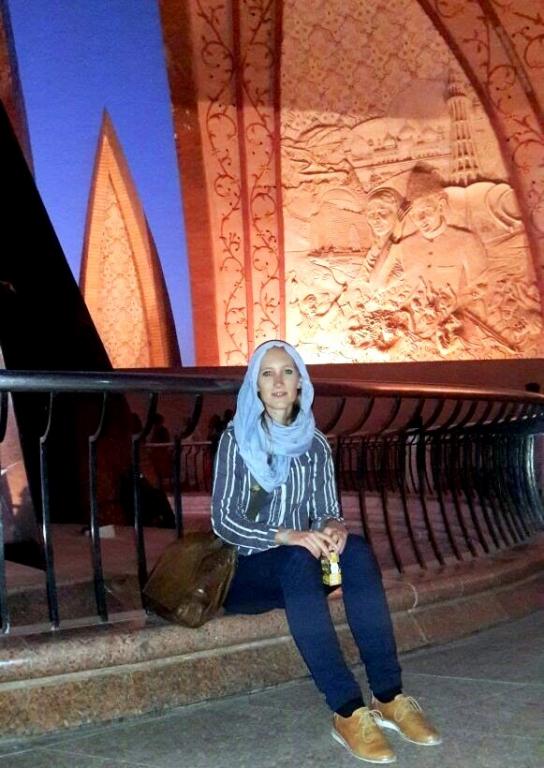UNITAR Team Visits Islamabad to Kick-off the Third-Party Monitoring (TPM)

24 -27 October 2017, Islamabad, Pakistan - After three full days of meetings in Islamabad, Pakistan, the Pakistan Evidence and Learning Platform (PELP) moves forward despite some containers in the middle of Islamabad's streets that made some short routes feel a bit longer.
The PELP team met with UK Department for International Development (DFID) and various project stakeholders and partners: UNDP, UNICEF, UNDSS and UNRCO, the Multi-Year Humanitarian Programme (MYHP) Consortia Leads, VTT Global (Pvt) Ltd, government representatives from the Economic Affairs Division (EAD), evaluation consultants and others.
The meetings were aimed at sorting out final details for the establishment of the PELP office in Pakistan and kicking-off the TPM work by a Pakistani company, VTT Global (Pvt) Ltd, which was selected through a competitive procurement process. The contract was signed between UNITAR and VTT on 10 November 2017. The Third Party Monitoring (TPM) is an important component of PELP, which aims to provide independent evidence on the UK-funded Multi-Year Humanitarian Programme (MYHP)'s progress towards the achievement of results for accountability and learning purposes.
 VTT Global (Pvt.) Ltd. will be monitoring, gathering evidence-based information and documenting the UK Department for International Development (DFID)’s Multi-Year Humanitarian Programme (MYHP) 2014-2019 in Pakistan, implementing partners’ activities under Pillars I, II and III of the MYHP in various districts of Punjab, Khyber Pakhtunkhwa, FATA, and Sindh provinces. They will conduct interviews, Focus Group Discussions, observations and surveys with MYHP beneficiaries, implementing partners, sub-implementing partners, and other relevant stakeholders. Some monitoring activities will also be conducted in the Islamabad Capital Territory (ICT).
VTT Global (Pvt.) Ltd. will be monitoring, gathering evidence-based information and documenting the UK Department for International Development (DFID)’s Multi-Year Humanitarian Programme (MYHP) 2014-2019 in Pakistan, implementing partners’ activities under Pillars I, II and III of the MYHP in various districts of Punjab, Khyber Pakhtunkhwa, FATA, and Sindh provinces. They will conduct interviews, Focus Group Discussions, observations and surveys with MYHP beneficiaries, implementing partners, sub-implementing partners, and other relevant stakeholders. Some monitoring activities will also be conducted in the Islamabad Capital Territory (ICT).
A total of 27 TPM reports (one per month) will be produced based on fieldwork and other data collection methods, covering the period from December 2017 to September 2019 (21 reports), and a six-month "catch-up" period covering June to November 2017 (6 reports), covering all aspects of MYHP and its impact on communities, especially most vulnerable groups including but not limited to women and girls, as well as the elderly and the disabled, will be produced until 2019.
About the PELP
The Pakistan Evidence and Learning Platform (PELP) is funded with UK Aid from the UK government. The PELP strengthens knowledge management in the humanitarian sector thereby ensuring a continuously improving humanitarian response. The PELP seeks to increase the accountability, transparency and effectiveness of the humanitarian system through three interconnected components: a knowledge and learning hub; third party monitoring; and an innovation grants mechanism. The PELP will initially be linked to the UN Resident Coordinator’s Office, and gradually be transferred to national entities ensuring longer-term sustainability.
Photo 1: Ms. Katinka Koke at National Monument of Pakistan.
Photo 2: Logo of VTT Global (Pvt.) Ltd.

